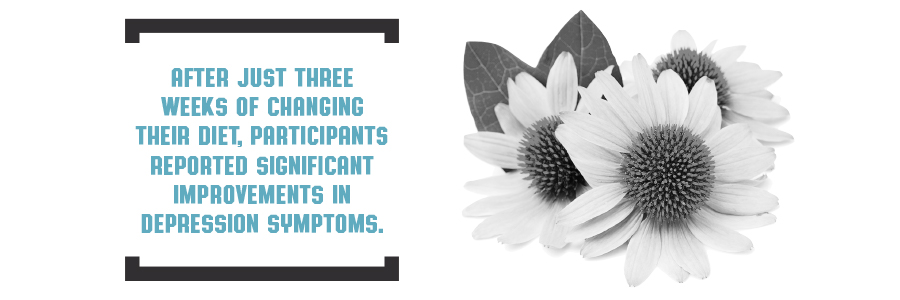


Sign-up for {N}power to get exclusive discounts, newsletters, members-only features, and more!
 Denver - Design District - Alameda and Broadway
Denver - Design District - Alameda and Broadway
368 S Broadway
Denver, CO 80209
United States
 Preferred Store:
Select a Store
Preferred Store:
Select a Store

Recent research shows that those suffering from mild anxiety may find relief in a supplement best known for supporting immunity: echinacea. Researchers in Budapest, Hungary conducted a double-blind placebo controlled study to examine the effects of echinacea on anxiety scores for 62 adults with elevated anxiety. The subjects took one tablet of echinacea, containing 40 mg of echinacea extract, daily for seven days. The patients’ anxiety scores were tracked for an additional three weeks after the treatment was discontinued.
Participants taking the echinacea extract showed significant improvements in anxiety scores compared to those taking the placebo after the seven-day treatment period. More surprisingly, these benefits remained persistent in the three weeks after they had stopped the echinacea treatment. The researchers acknowledged that echinacea is not a replacement for anxiety medication, but may offer another tool for people with mild anxiety. This study adds to the body of research highlighting the connection between the brain and immune system and may lead to further research examining the effects of what has been traditionally thought as immune supportive supplements for both cognitive function and mood.
Research shows that the quality of your diet can affect mental health, including mood and depression. For instance, while many often turn to sugary foods to provide a quick pick-me-up and mood boost, recent studies indicate that this strategy can actually worsen mood. And it doesn’t take long for the effects to be seen, according to one recent meta-analysis. In this study, researchers analyzed data from 31 randomized controlled trials to examine the acute effects of eating refined sugars on mood in healthy adults. Results revealed that within just one hour of consuming refined sugars, participants experienced detrimental effects on mental health, including significant decreases in alertness and energy levels. A number of previous studies have established a link between diets high in sugar and depression.

The good news, research also shows that cleaning up your diet and eating healthier can positively impact mood, and quickly too! In one 2019 study, young adults with depression symptoms were asked to decrease their intake of processed food and sugar (particularly from refined carbohydrates and soft drinks) and switch to a Mediterranean-style diet. This included eating five servings of vegetables per day, two to three servings of fruit, and increasing their intake of other health-promoting foods like fish, nuts and seeds, olive oil, and spices like turmeric and cinnamon. After just three weeks of changing their diet, participants reported significant improvements in depression symptoms and lower levels of anxiety and stress. If one thing is clear, simple strategies such as improving the diet go a long way in supporting overall health, including improved mental health.



Sign-up for {N}power to get exclusive discounts, newsletters, members-only features, and more!
